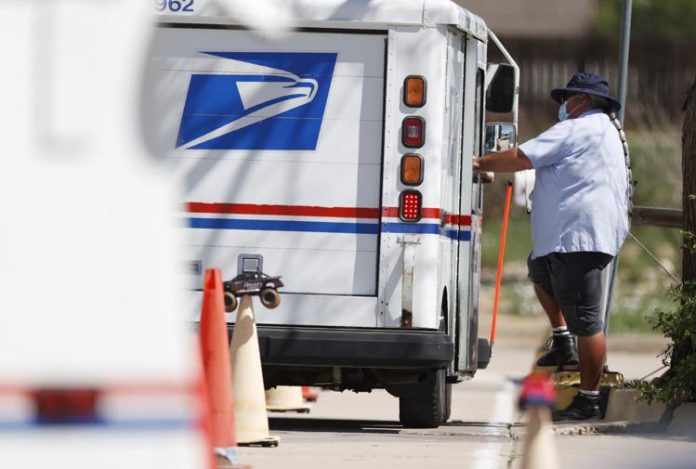
The United States Postal Service (USPS) isn’t exactly known for its financial acumen. The agency has lost more than $90 billion over the past 15 years, including nearly $15 billion since the start of the pandemic. Delivery speeds have rebounded since the middle of 2020, and the agency has a historic amount of cash-on-hand, but leadership has failed to stop the fiscal bleeding. And now, lawmakers are set to make things even worse by passing the deeply misguided H.R. 3076, the Postal Service Reform Act of 2021. This bundle of changes would shift retirement costs around and put the USPS on the hook for ill-defined “nonpostal services.” Congress should steer clear of H.R. 3076 and work toward genuine postal reform.
The Postal Service Reform Act would change plenty about how the USPS operates. The most widely discussed change is the “integration” of retiree health benefits into Medicare. The legislation would split the existing Federal Employees Health Benefits (FEHB) program, which covers about 8 million federal and postal workers, retirees, and family members, into two. Out of this divorce would emerge a new general FEHB and a separate Postal Service Health Benefits (PSHB) Program linked financially to the Medicare program. Virtually all USPS employees would eventually be covered by Medicare, absolving America’s mail carrier of considerable healthcare costs.
This “reform” does little, though, to actually save taxpayer money. It merely shifts a costly burden from one federal agency to another. Medicare expenditures now total more than $800 billion per year, and the program’s main trust fund is expected to hit insolvency by 2026. Adding postal retirement liabilities onto an already-bloated program seems like an odd way to keep costs under control.
The grand Medicare “fix” receives far more attention than an even more alarming provision of the postal proposal.
Section 103 of the act authorizes the USPS to “establish a program to enter into agreements with an agency of any State government, local government, or tribal government to provide property and services on behalf of such agencies for non-commercial products and services…” The limited-sounding scope of the provision seems to rule out the possibility that the USPS will take up banking (which many agency watchers reasonably feared).
In reality, the legislative language gives the USPS wide license to dabble in banking and other problematic endeavors. To see how, consider that states such as New Jersey and California have been toying around with the idea of opening public sector banks. In 2019, California Gov. Gavin Newsom (D) signed into law a bill allowing counties and cities to create their own financial institutions that could take deposits and facilitate certain low-interest loans. And, New Jersey has been busy studying the implementation of its own public banking initiatives.
One problem for public officials is cost. If taxpayer-funded banks provide inexpensive financial services, that money must come from somewhere. Enter the USPS, which can grab taxpayer subsidies and low-interest Treasury loans if it fails to balance its books. If H.R. 3076 becomes the law of the land, expect states and localities to try and partner up with the federal agency to provide ostensibly “non-commercial” financial services. And, if the USPS’ check-cashing pilot is any indication, expect that effort to end in disaster.
If lawmakers really want the USPS to get back into the black, they’ll need to push the agency to focus on its core strength … delivering the mail. This will mean adequately pricing packages to ensure that artificially cheap parcels don’t swamp mail volumes and slow down mail delivery. There’s some promising language in H.R. 3076 ordering the Postal Regulatory Commission to review how products are priced. But, this will accomplish little if all the other problematic provisions become law. The USPS can continue delivering for the American people, but only if lawmakers avoid the misguided policies contained in postal “reform” legislation.
Ross Marchand is a senior fellow for the Taxpayers Protection Alliance.













